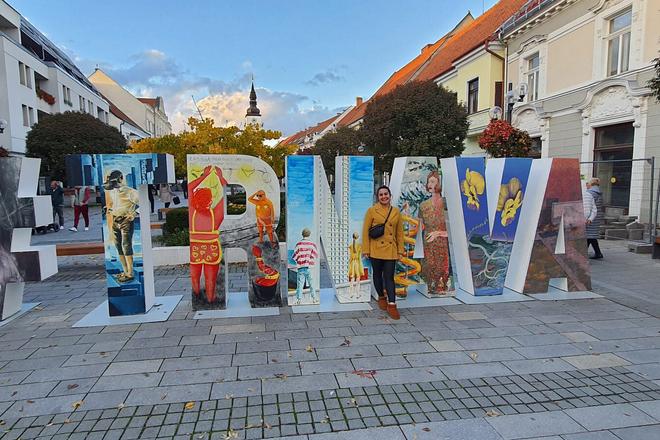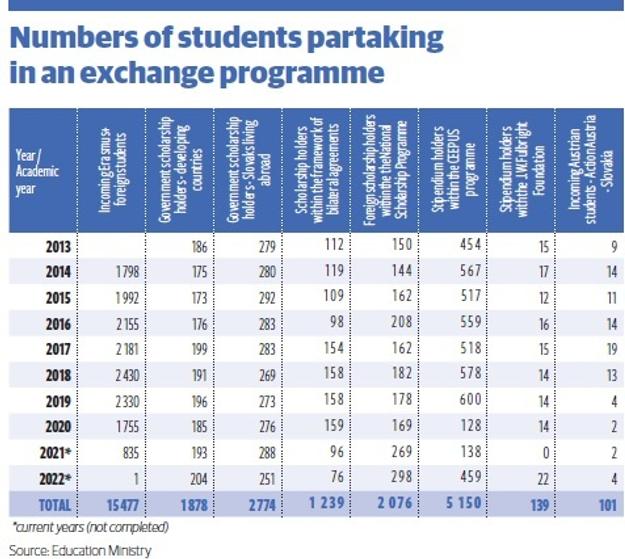Everybody told me two things about Slovakia: that people there are helpful and welcoming like in Turkey. And that they don’t speak a lot of English,” Müge Altincinar, a Turkish pedagogy student currently studying in Trnava via the Erasmus+ programme, tells The Slovak Spectator.
Slovakia attracts foreigners due to its advantageous position in the heart of Europe, and its historical landmarks and nature. Even during the current economic turbulence, services here remain relatively affordable. However, to international students the country presents more than the usual sights portrayed on postcards in souvenir stores.
Exchange programmes for Slovaks
Slovak students can also experience exchange programmes. In their annual report, the Education Ministry writes that 32 universities participated in the Erasmus+ programme during 2020.
A total of 2,657 students travelled abroad to study.
Bratislava’s Comenius University sent the most students, 617.
For an international student, it can be quite difficult to navigate the unfamiliar Slovak environment. The challenges of travelling from one place to another, dealing with public authorities and overcoming noticeable language barriers are among the obstacles that students staying in the country describe.
While the language barrier was not so present in Bratislava, Müge said she encountered more communication problems in nearby Trnava. During lectures, teachers would sometimes forget that they were supposed to teach their classes in English. Classmates had to come to the rescue and translate for her, the Turkish student says.
Aside from a few exceptions, Müge was accepted straight away by a good support system of both international and non-international students. “Thankfully, our school has a buddy system. If anything happened to me, help’s just one call away.”
On the other hand, not every international student attending an exchange programme in Slovakia has had Altincinar’s luck with the buddy system or with reasonably responsive university authorities.
While living in Slovakia during his computer science studies in the Erasmus+ programme, German student Tobias Cloppenburg was told that Slovaks often do not want to speak English, or interact with foreigners at all.



 Turkish pedagogy student Müge Altincinar in Trnava. (source: Archive of Müge Altincinar )
Turkish pedagogy student Müge Altincinar in Trnava. (source: Archive of Müge Altincinar )
